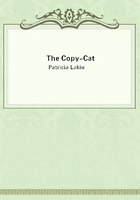
第39章 NOBLESSE(1)
MARGARET LEE encountered in her late middle age the rather singular strait of being entirely alone in the world. She was unmarried, and as far as relatives were concerned, she had none except those connected with her by ties not of blood, but by marriage.
Margaret had not married when her flesh had been comparative; later, when it had become superlative, she had no opportunities to marry. Life would have been hard enough for Margaret under any circum-stances, but it was especially hard, living, as she did, with her father's stepdaughter and that daughter's husband.
Margaret's stepmother had been a child in spite of her two marriages, and a very silly, although pretty child. The daughter, Camille, was like her, although not so pretty, and the man whom Camille had mar-ried was what Margaret had been taught to regard as "common." His business pursuits were irregular and partook of mystery. He always smoked ciga-rettes and chewed gum. He wore loud shirts and a diamond scarf-pin which had upon him the appear-ance of stolen goods. The gem had belonged to Margaret's own mother, but when Camille expressed a desire to present it to Jack Desmond, Margaret had yielded with no outward hesitation, but after-ward she wept miserably over its loss when alone in her room. The spirit had gone out of Margaret, the little which she had possessed. She had always been a gentle, sensitive creature, and was almost helpless before the wishes of others.
After all, it had been a long time since Margaret had been able to force the ring even upon her little finger, but she had derived a small pleasure from the reflection that she owned it in its faded velvet box, hidden under laces in her top bureau drawer.
She did not like to see it blazing forth from the tie of this very ordinary young man who had married Camille. Margaret had a gentle, high-bred contempt for Jack Desmond, but at the same time a vague fear of him. Jack had a measure of unscrupulous business shrewdness, which spared nothing and no-body, and that in spite of the fact that he had not succeeded.
Margaret owned the old Lee place, which had been magnificent, but of late years the expenditures had been reduced and it had deteriorated. The conserva-tories had been closed. There was only one horse in the stable. Jack had bought him. He was a worn-out trotter with legs carefully bandaged. Jack drove him at reckless speed, not considering those slender, braceleted legs. Jack had a racing-gig, and when in it, with striped coat, cap on one side, cigarette in mouth, lines held taut, skimming along the roads in clouds of dust, he thought himself the man and true sportsman which he was not. Some of the old Lee silver had paid for that waning trotter.
Camille adored Jack, and cared for no associations, no society, for which he was not suited. Before the trotter was bought she told Margaret that the kind of dinners which she was able to give in Fairhill were awfully slow. "If we could afford to have some men out from the city, some nice fellers that Jack knows, it would be worth while," said she, "but we have grown so hard up we can't do a thing to make it worth their while. Those men haven't got any use for a back-number old place like this. We can't take them round in autos, nor give them a chance at cards, for Jack couldn't pay if he lost, and Jack is awful honorable. We can't have the right kind of folks here for any fun. I don't propose to ask the rector and his wife, and old Mr. Harvey, or people like the Leaches.""The Leaches are a very good old family," said Margaret, feebly.
"I don't care for good old families when they are so slow," retorted Camille. "The fellers we could have here, if we were rich enough, come from fine families, but they are up-to-date. It's no use hang-ing on to old silver dishes we never use and that Idon't intend to spoil my hands shining. Poor Jack don't have much fun, anyway. If he wants that trotter -- he says it's going dirt cheap -- I think it's mean he can't have it, instead of your hanging on to a lot of out-of-style old silver; so there."Two generations ago there had been French blood in Camille's family. She put on her clothes beauti-fully; she had a dark, rather fine-featured, alert lit-tle face, which gave a wrong impression, for she was essentially vulgar. Sometimes poor Margaret Lee wished that Camille had been definitely vicious, if only she might be possessed of more of the charac-teristics of breeding. Camille so irritated Margaret in those somewhat abstruse traits called sensibilities that she felt as if she were living with a sort of spiritual nutmeg-grater. Seldom did Camille speak that she did not jar Margaret, although uncon-sciously. Camille meant to be kind to the stout woman, whom she pitied as far as she was capable of pitying without understanding. She realized that it must be horrible to be no longer young, and so stout that one was fairly monstrous, but how horrible she could not with her mentality conceive. Jack also meant to be kind. He was not of the brutal -- that is, intentionally brutal -- type, but he had a shrewd eye to the betterment of himself, and no realization of the torture he inflicted upon those who opposed that betterment.
For a long time matters had been worse than usual financially in the Lee house. The sisters had been left in charge of the sadly dwindled estate, and had depended upon the judgment, or lack of judgment, of Jack. He approved of taking your chances and striking for larger income. The few good old grand-father securities had been sold, and wild ones from the very jungle of commerce had been substituted.